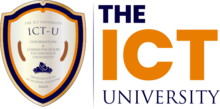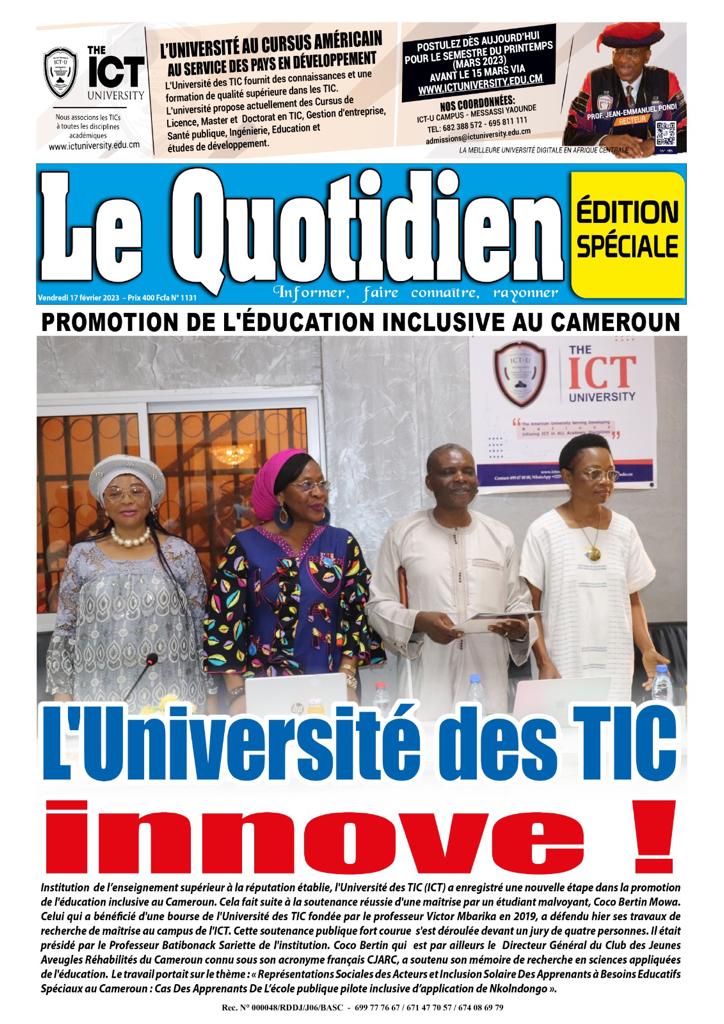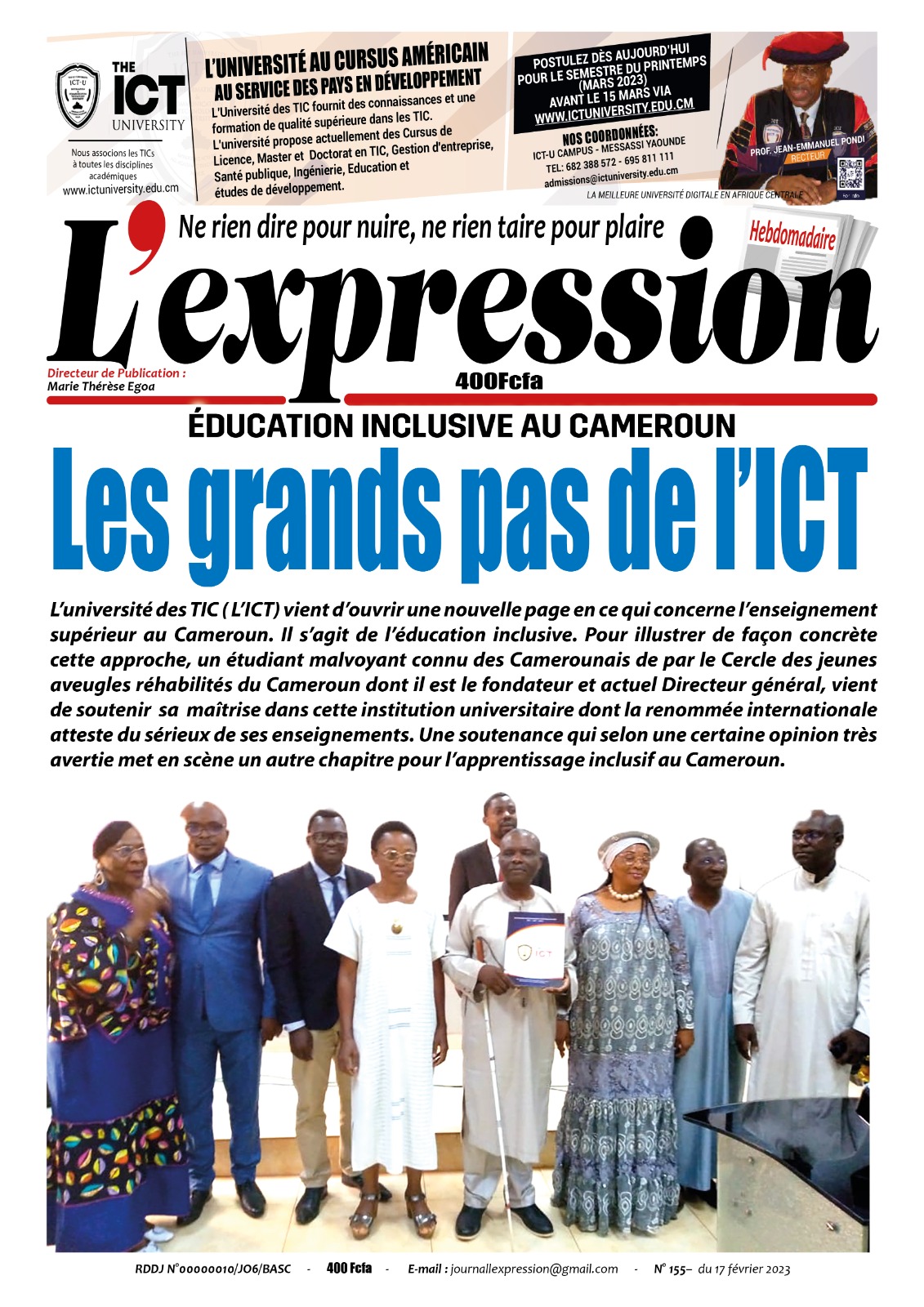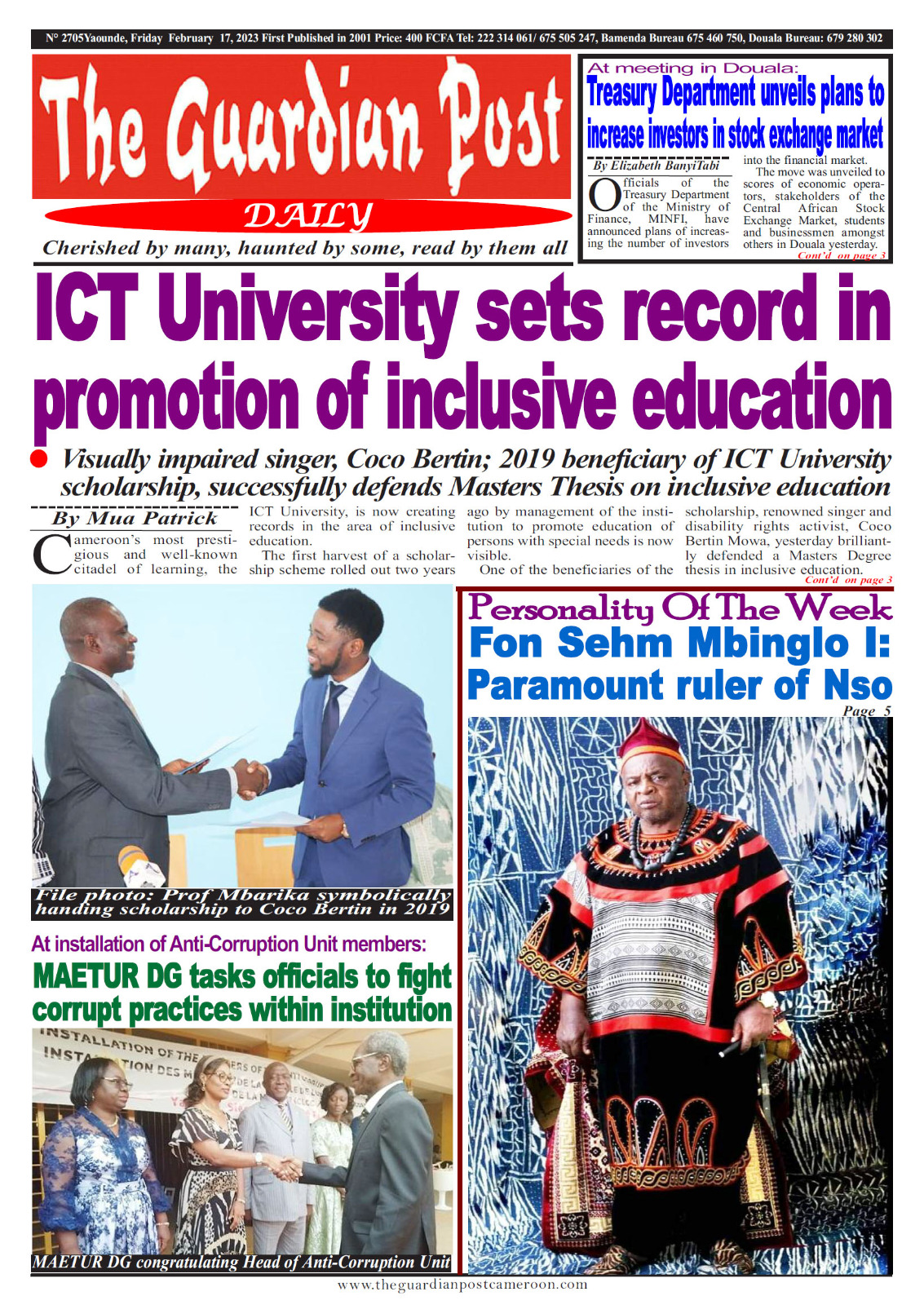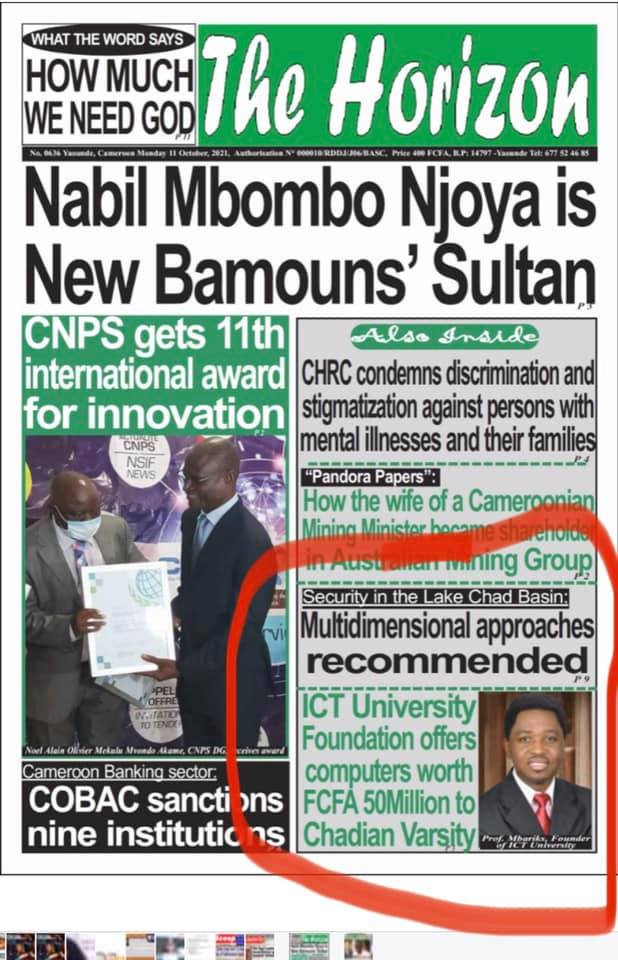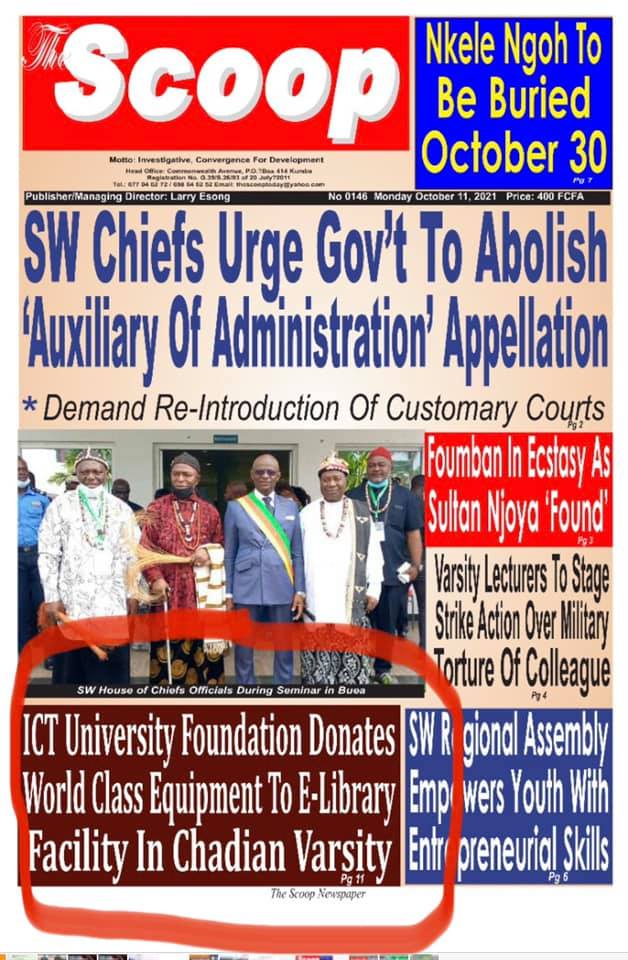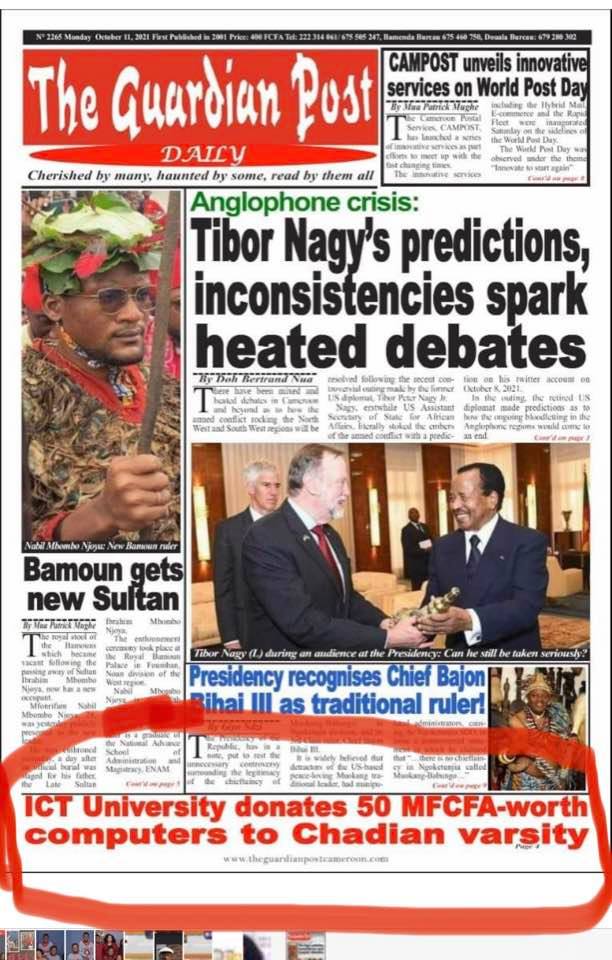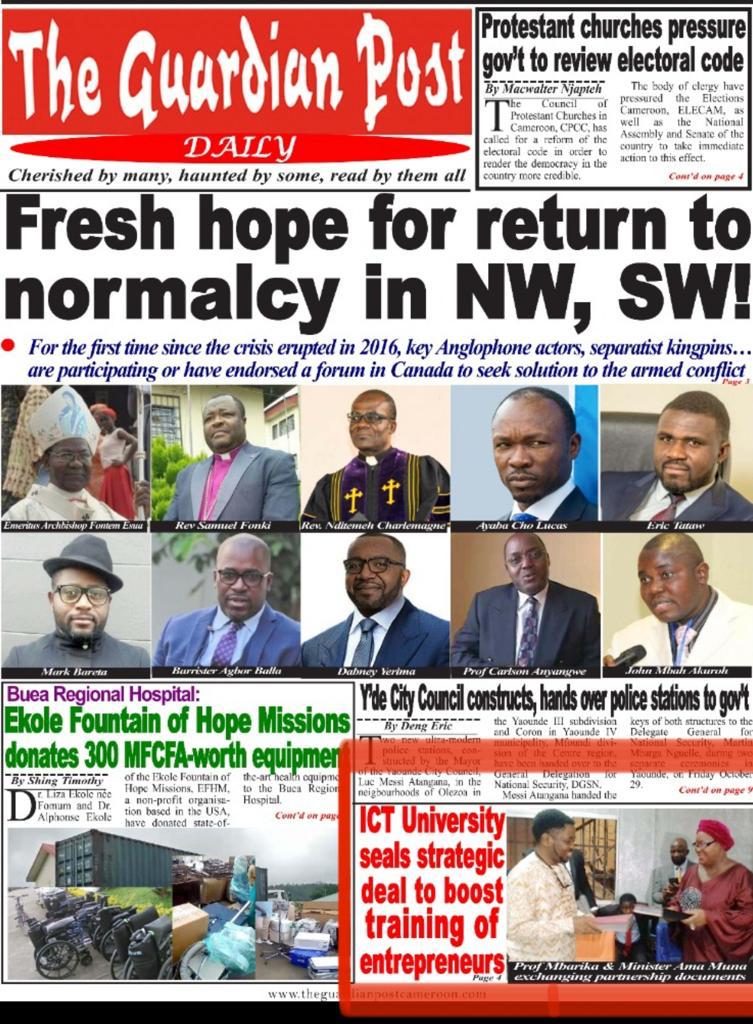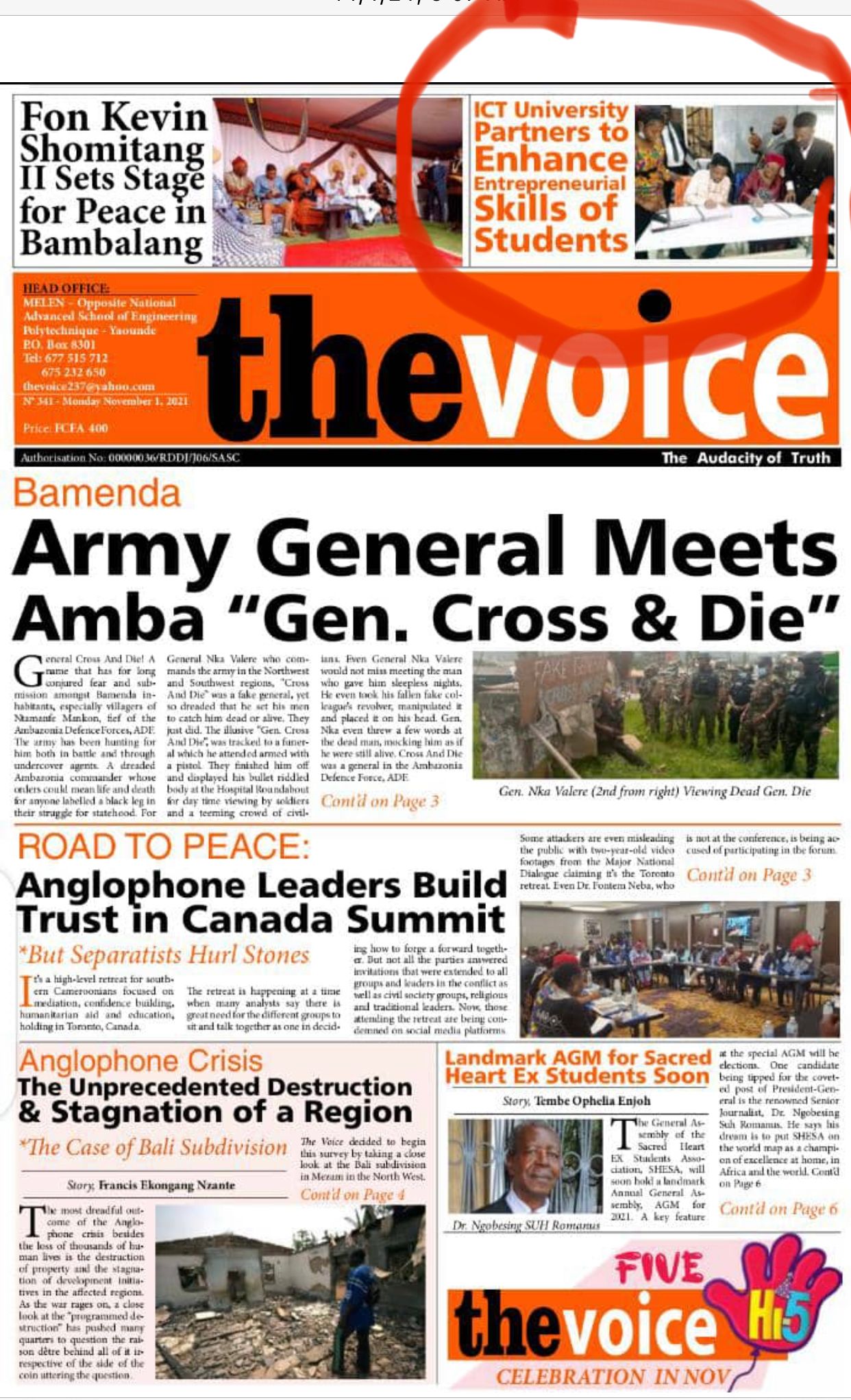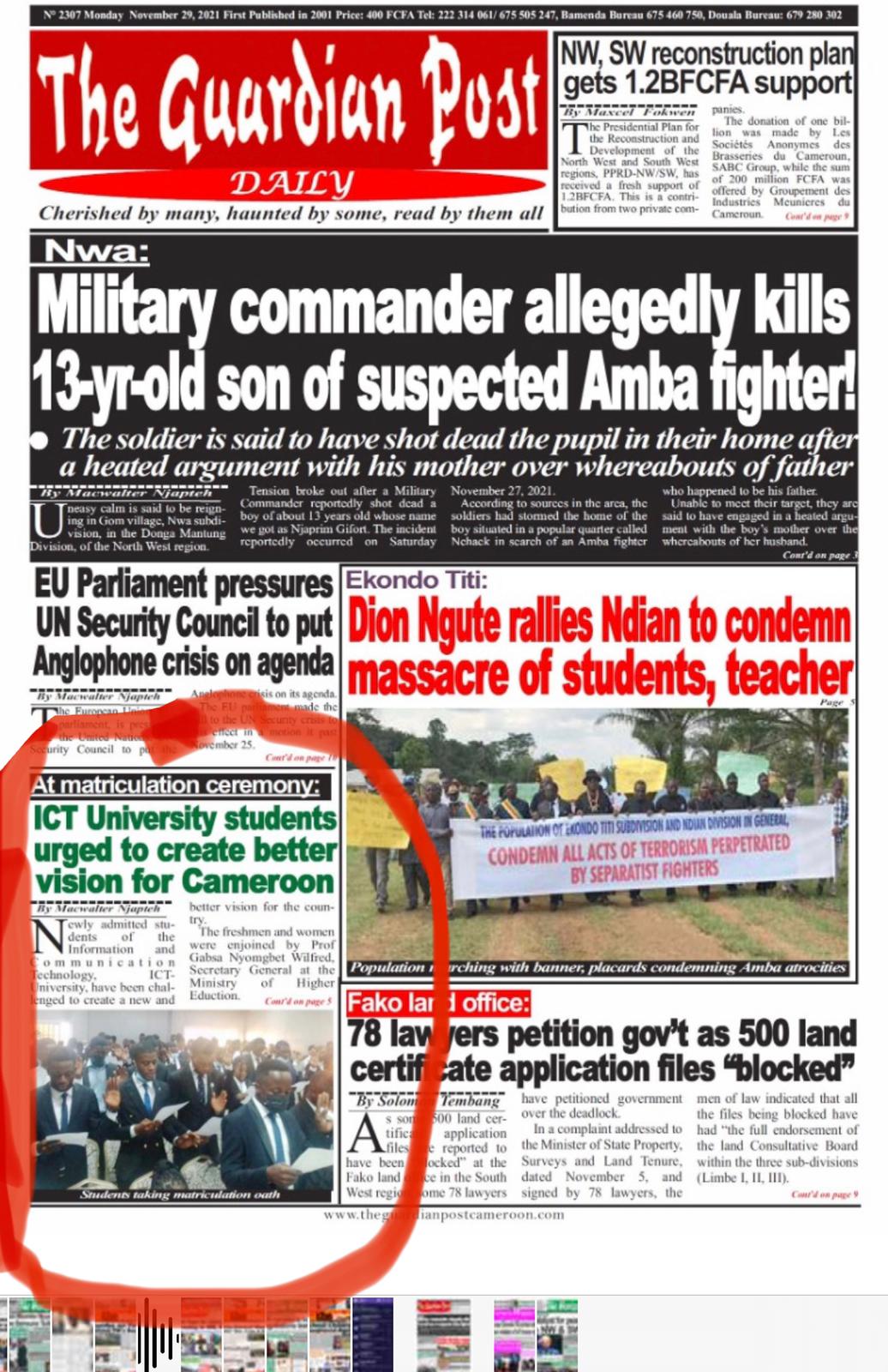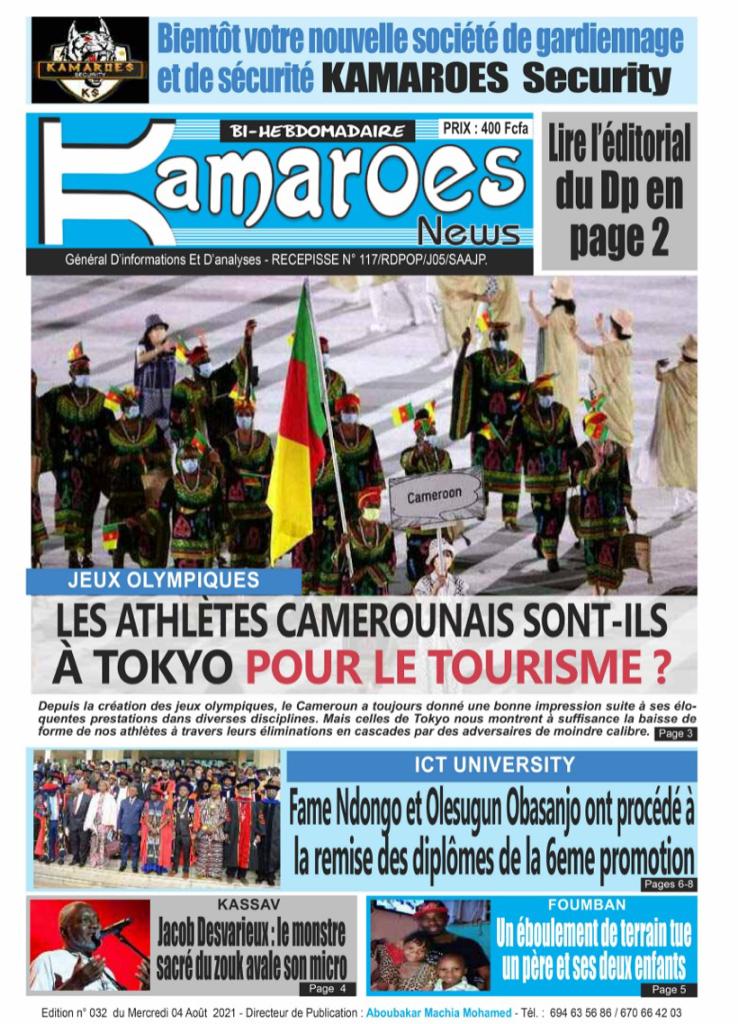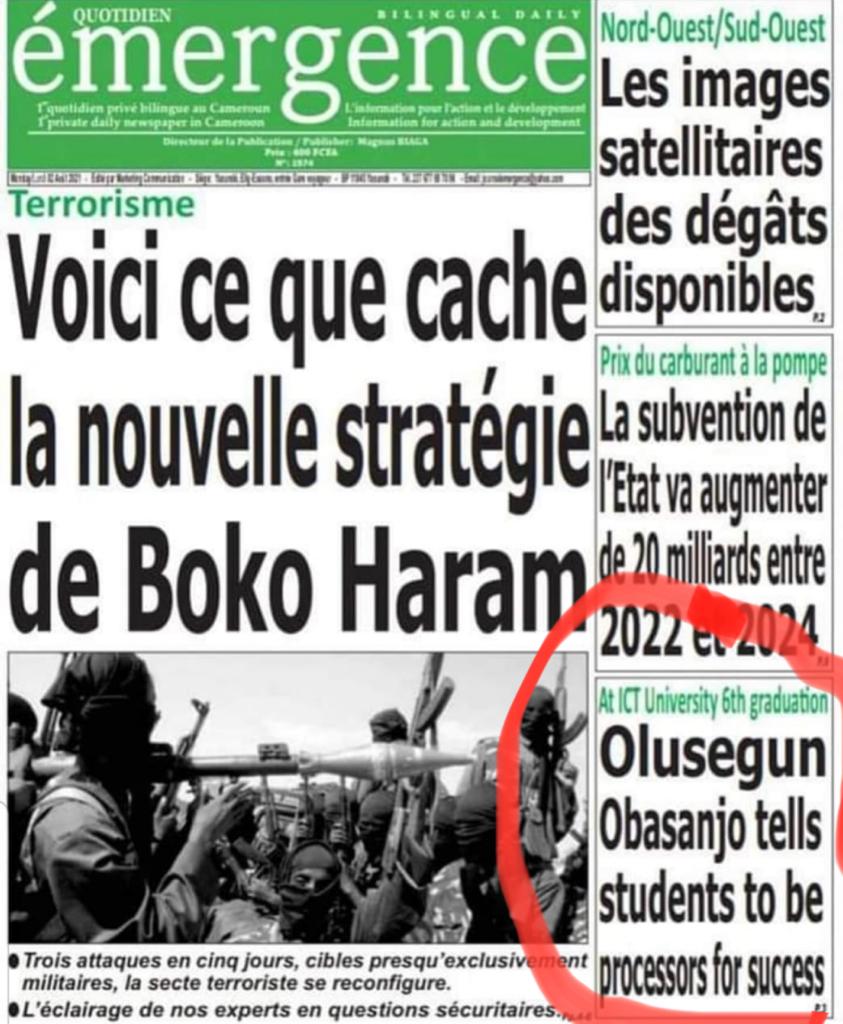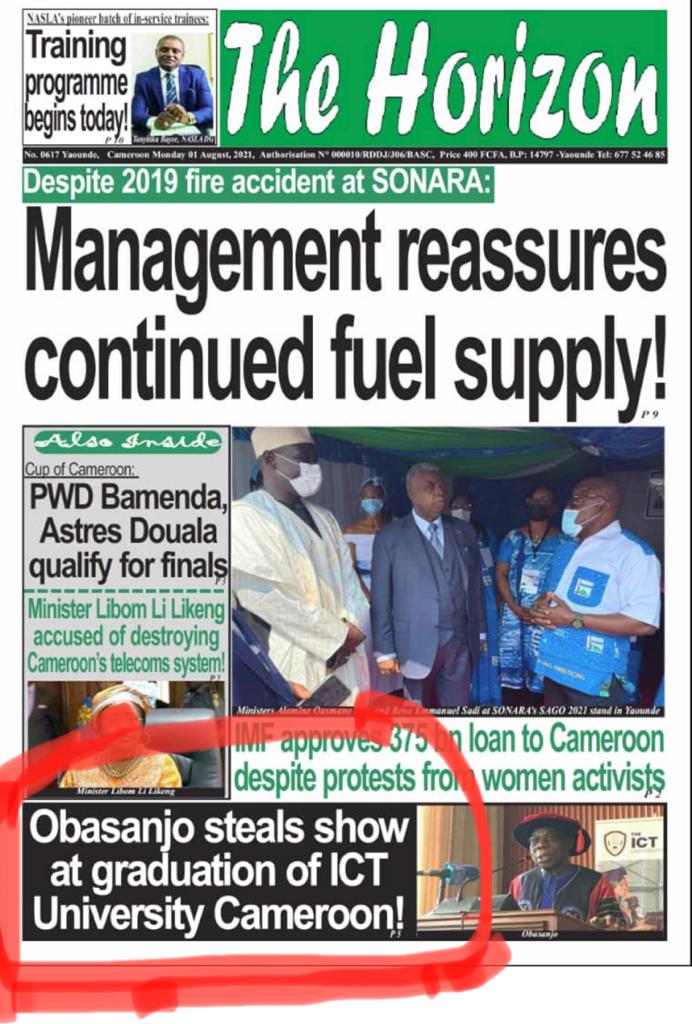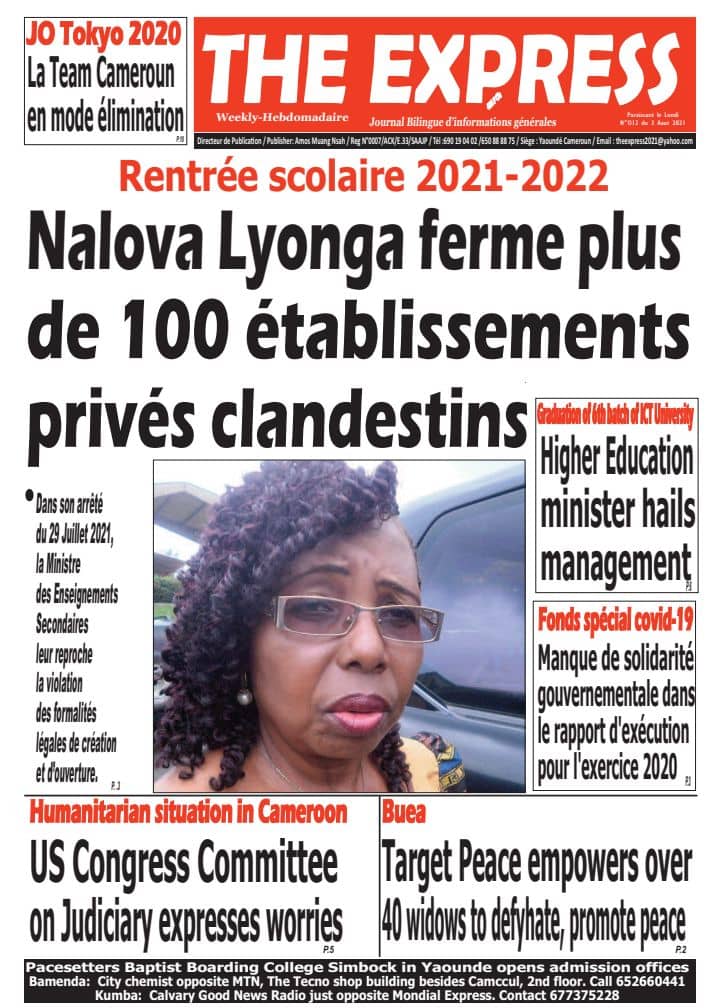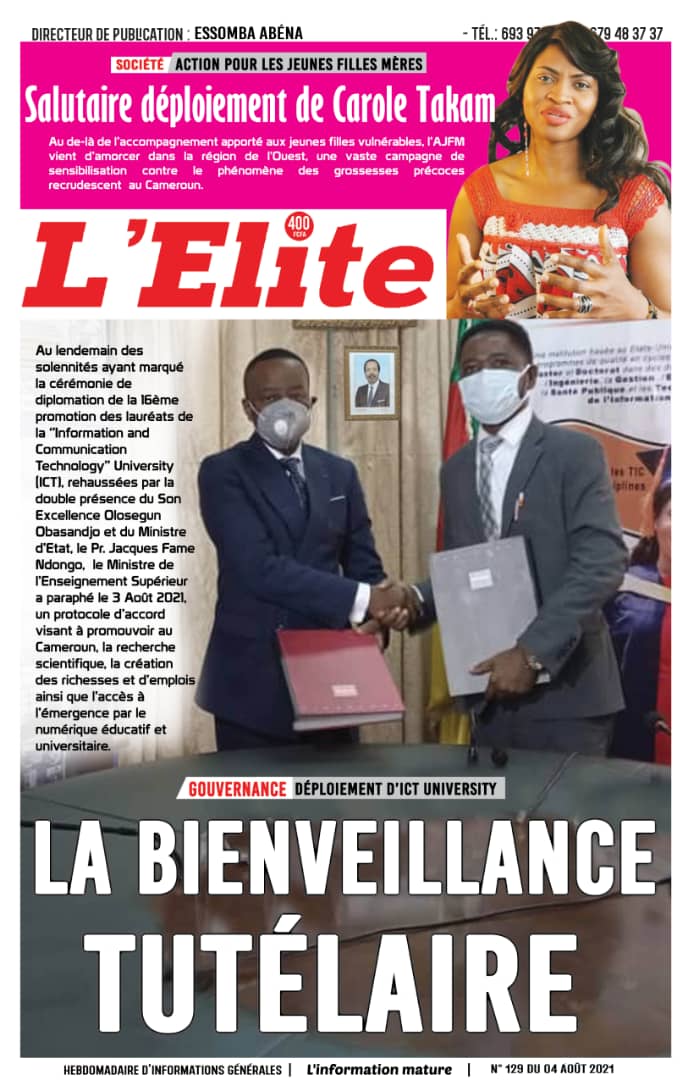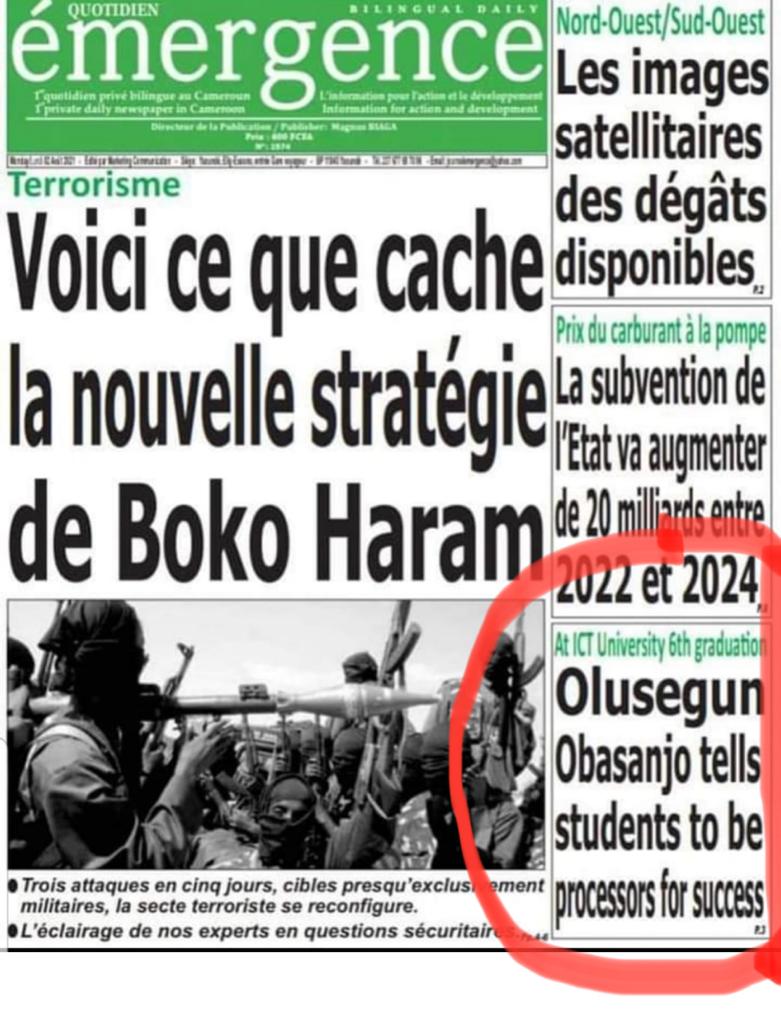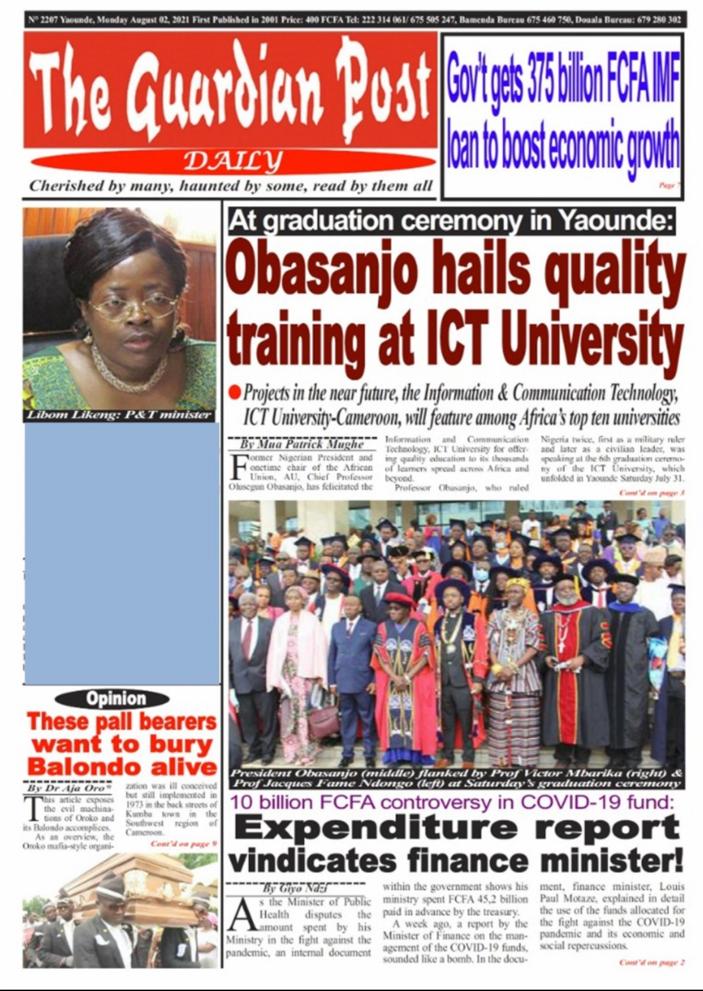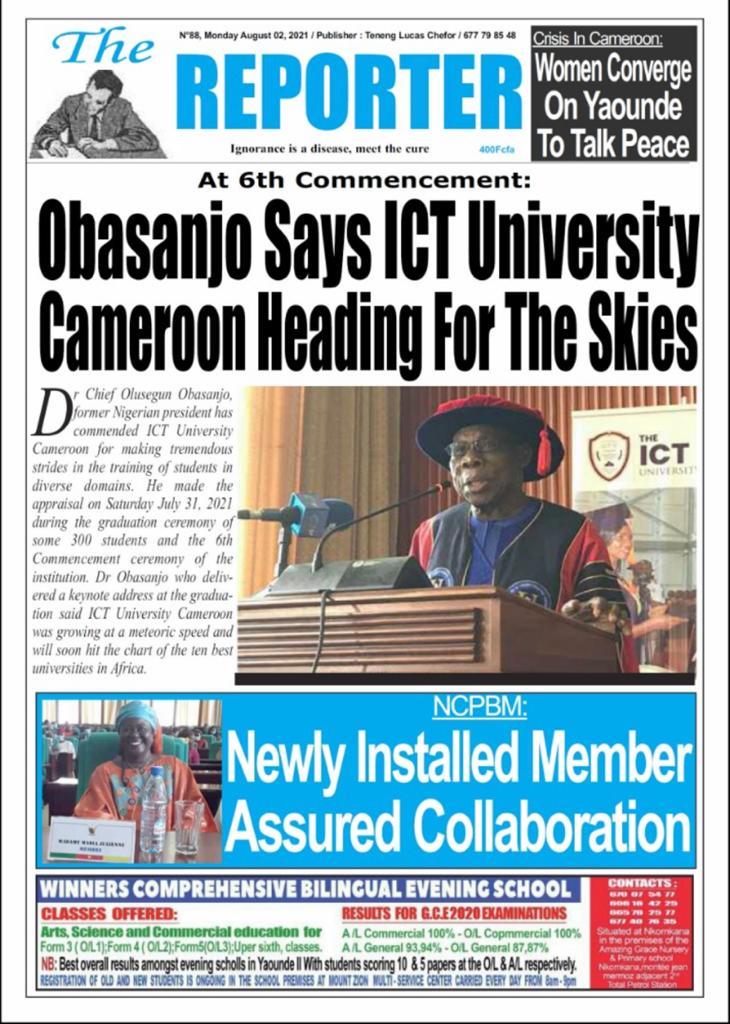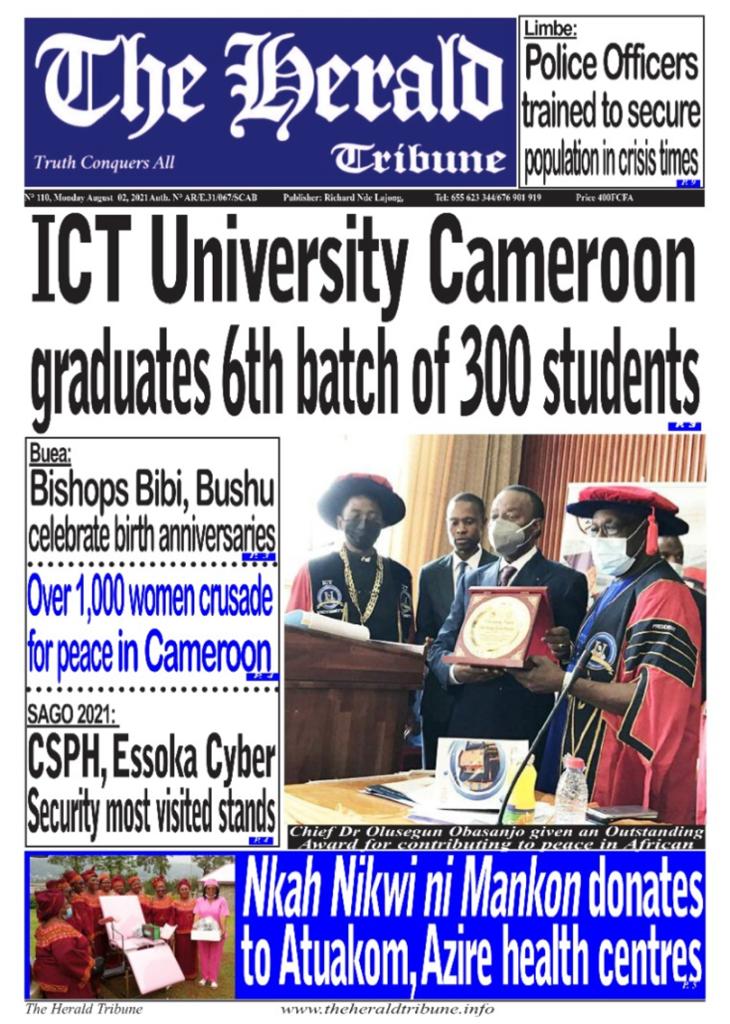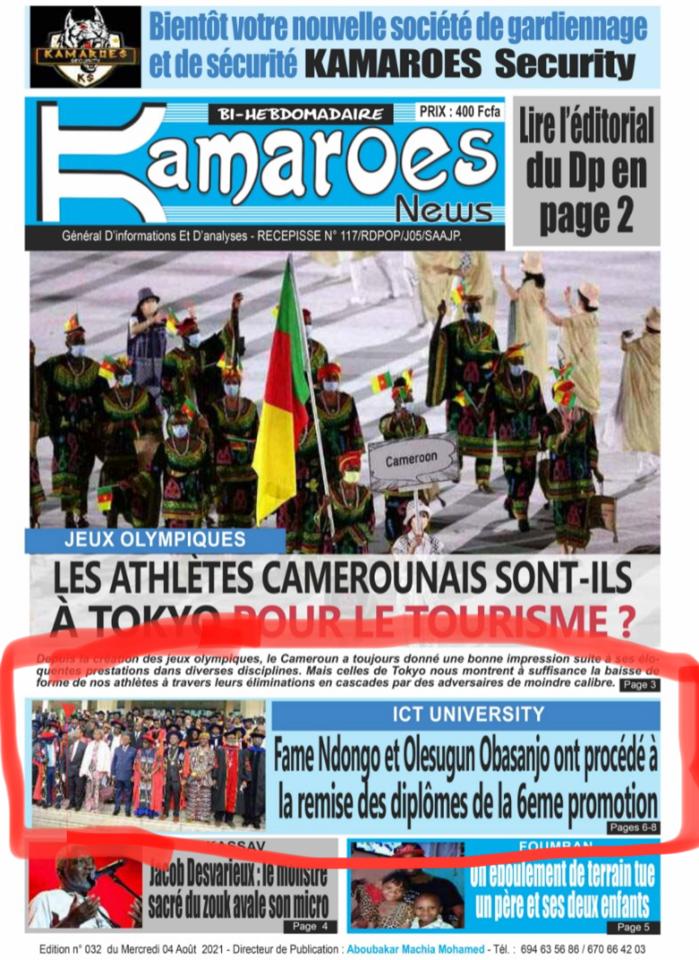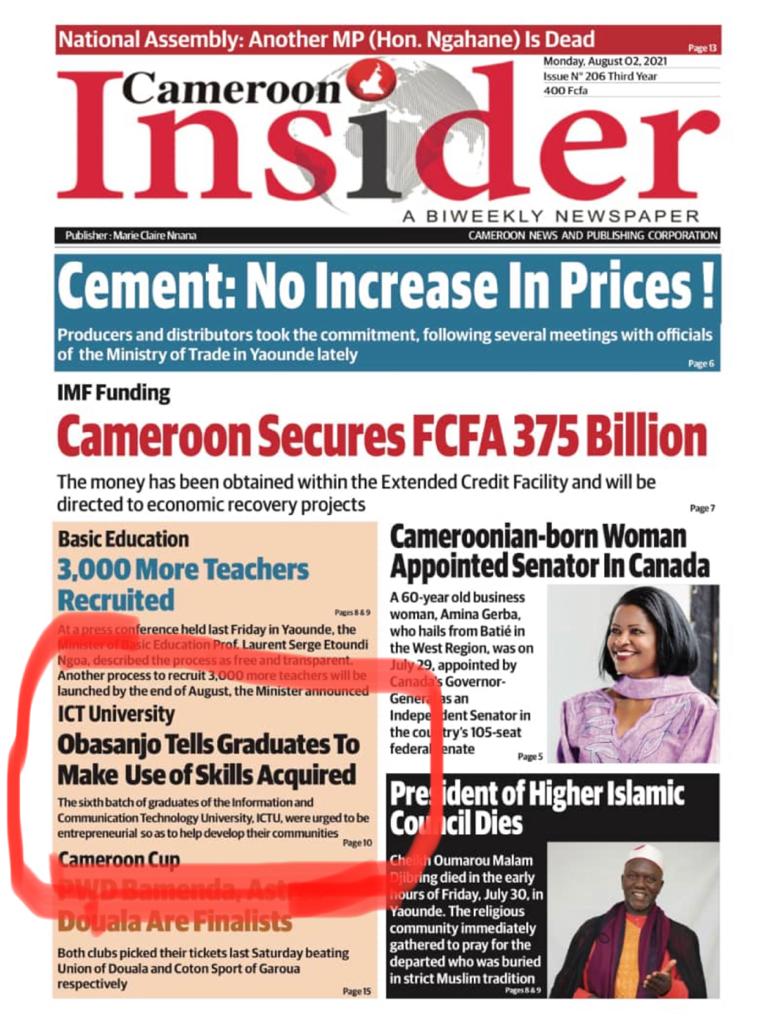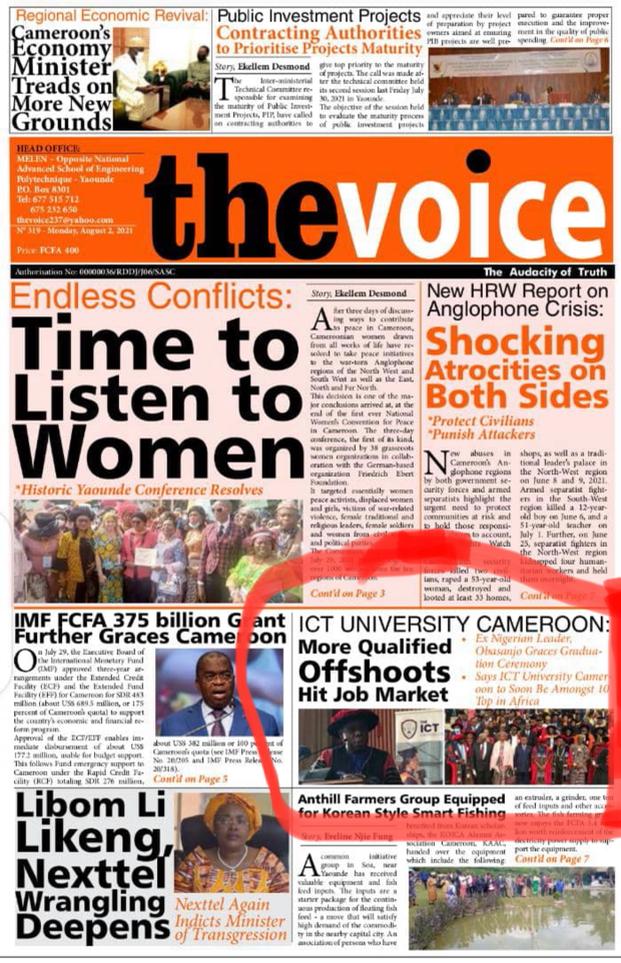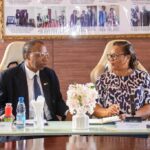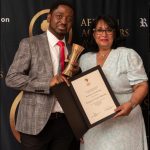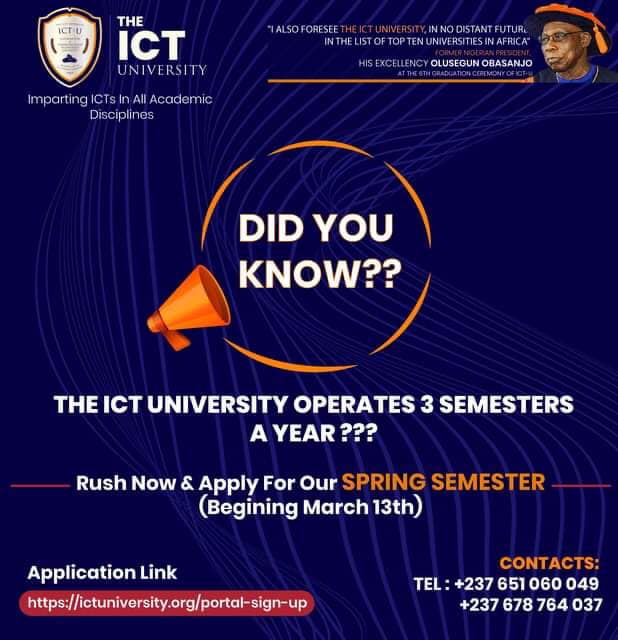The Vice Chancellor of The ICT University Cameroon, Professor Beban Sammy Chumbow has just returned from Nairobi, Kenya where he attended a meeting of the Network of African Science Academies (NASAC) and the 11th Annual Meeting of African Sciences Academies (AMASA), hosted by the Kenya Academy of Sciences from November 28 to December 02 2015. The theme of this year’s AMASA conference was Non- Communicable diseases: Post 2015 development Agenda. He was attending these events in his capacity as Vice President of the Cameroon Academy of Sciences (CAS), a foundation Member of NASAC, and leading the Cameroonian delegation consisting of Prof Vincent Tanya, a virologist and Professor Samuel Kingue, a cardiologist.


Interview with The ICTU Outreach Officer
Outreach Officer: What are “non-communicable diseases (NCDs) and how important is this theme?
Vice Chancellor: Non Communicable Diseases are diseases which result from the lifestyle we live, such as our sedentary life style or lack of adequate physical activity, our diet and tobacco and alcohol abuse etc. These unhealthy life-styles may result in obesity, heart attacks, stroke, cancer, lung diseases and diabetes and the list is not exhaustive. The Nairobi conference brought together experts from all over Africa and Europe to examine causes, risk factors, prevention and treatment of NCDs and propose informed solutions based on the output of scientific research.
Outreach Officer: How important is a theme on the prevention and treatment of NCDs for Academies of Sciences
Vice Chancellor: Very important! Non Communicable diseases are the leading cause of mortality and account for the majority of morbidity worldwide. According to WHO statistics of 2012, there were about 56 million deaths in the world. Thirty eight (38) million or 68% of these were due to NCDs. Sixty eight percent is quite significant’ Only 32% of deaths is due to communicable diseases What is worse, is that 28 million deaths out of the 38 million NCD deaths, occurred in Low and Middle Income countries (LMIC) which include most countries of Africa. In short, most people in Africa are likely to die of a non-communicable disease than from a communicable disease. In other words, death rate through a careless life-style is alarming! That is why WHO asked in 2011 for a special post 2015 agenda for sensitization and prevention of NCDs. That is why the 21 Academies of Sciences in Africa united in the network (NASAC), from Morocco to South Africa, are unanimous about using the results of scientific research on NCDs to advise African governments to adopt informed policies to tackle the problem of NCDs nationally, regionally and continentally.
Outreach Officer: What are Science Academies?
Vice Chancellor: An Academy of Science is an institution of distinguished scientists from various domains of science, (pure, applied, social and human sciences etc.) committed to working together to advance the cause and course of science and to provide, policymakers, governments and the human societies with objective, evidence- based advice to enhance national development. Each national Academy aims to provide authoritative advice, based on the results of scientific findings to its government. The Network of African Academies of Science is like the African Union of science and scientific research, with national academies united to work together as vehicle for positive social, cultural, economic and political change in Africa. Academies of Sciences are veritable think-tanks for the emergence of African nations in the present age of knowledge economy where knowledge is power.
Outreach officer: What is the relevance of this conference to ICT-U?
Vice Chancellor: That reminds me of a question by a young lady, specialist in epidemiology to me at the conference. She asked me (after I was introduced): ‘What is a specialist in Linguistics and Communication doing at a conference on Non-communicable diseases? I replied: We will need to understand what your research findings are in order to ensure that they are properly communicated to the masses of the population in a language they know, in a way they can really understand what is at stake and be ready to appropriate the new ideas leading to a change of mentality, change of mindset and a change of life style congruent with what you specialists require to prevent NCDs. So we need to work with each other to accomplish what is needed to get positive results.
Well, diseases may putatively concern the domain of medicine but the sensitization of populations, the prevention and management of these deadly diseases concern everyone. Indeed, a clear understanding of the challenges of NCDs and their prevention require a multidisciplinary research and a multidimensional approach. There is need to understand the environmental causes and impact, the psychological and social impact of NCDs etc.
At the conference, there were several sessions with different sub-themes, including a session on ICT and Non-communicable Diseases (in which I participated), with papers examining the preparedness of Africa in the field of ICTs to control NCDs, integrating ICT in training and delivery of healthcare needs and the use of telemedicine (ICT techniques applied to medicine) to enhance delivery of services in the prevention and treatment of NCDs, etc.
Indeed, I came away with the feeling that ICT U can and should fruitfully participate in or champion research in the various areas of ICT and the mitigation of NCDs as well as participative communication in the prevention of NCDs. Graduate students and faculty at ICTU will benefit from participating in innovative research into this topical issue. We will discuss this within the context of our Research Agenda for ICTU (“where research matters”).


